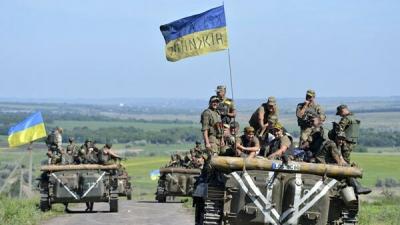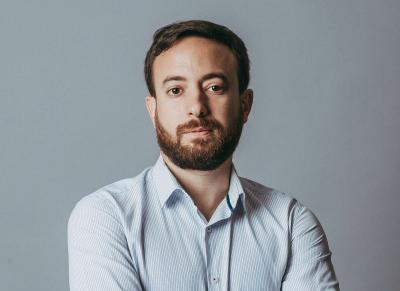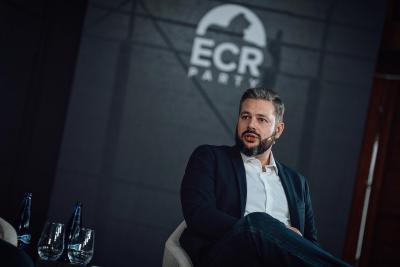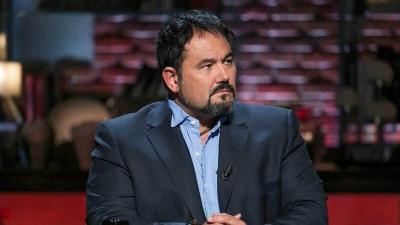The operation by Ukrainian forces in the Kursk region of Russia has been one of the most unexpected actions since the Russian invasion began in February and has so far drastically changed the map of a war that had been slowly changing since the recapture of Kherson and much of the Kharkov region.
The Ukrainians have seized some 1,000 square kilometres of Russian territory in an operation that has once again shown that the Tsar is naked. One of the many startling scenes of the incursion was that of a Russian civilian asking several Ukrainian soldiers if they were Americans. When the soldiers replied that they were from Zaporizhia, the Russian threw up his hands in disbelief. The story of the presence of NATO units is a favourite fantasy of Russian propaganda, which insists that Russia is under attack from the West. The most recent case was in July, when media reports claimed that more than forty British SAS and French regular troops had been killed and wounded in a Russian attack on Odessa. The idea is more topical than ever, not least because Russian propaganda has been unable to explain how the Ukrainians were able to enter Russian territory so easily. During the last prisoner exchange, one of the young soldiers captured at Kursk claimed to have been taken prisoner by American and Polish NATO troops, only to point out that NATO does not take prisoners. The coherence of the story does not matter, what matters is that the message is repeated over and over again.
But beyond the military aspect, what is the impact of the Kursk operation on Russian society? This question is best answered by Oleksandr Shulga, director of the Institute for Russian Conflict Studies and Analysis (IKAR), a Ukrainian institute that analyses the behaviour of Russian society. IKAR has just published a comprehensive media analysis of Russian social media during the early stages of the Ukrainian offensive in Kursk, between 6 and 24 August, and the results are striking. The research used keywords and phrases related to the events in Kursk, posts in local Telegram communities and the posts of individual Russian army soldiers, whose data was verified using OSINT tools.
Russian reactions to the events in Kursk peaked on 8 August with more than 600,000 mentions, dropping to nearly 80,000 on 14 August and 18,000 on 24 August. ‘This is an artificial decrease, because it cannot be that the citizens of Kursk lost interest in the events after only a few days. On the local Telegram channels, all comments and the possibility of uploading news were closed, which caused a significant drop in reactions,’ says Shulga, who believes that the images and messages from users showing the rapid advance of Ukrainian troops, coupled with the silence of the Russian authorities, have created enormous discontent among the population. ‘The reaction of Russian propaganda reminded me of what happened during the Prigozhin mutiny: absolute panic. They didn’t know what to say, and on the other hand the lack of information was covered by military bloggers and ordinary Russians, so for once things were seen for what they really are, and we saw how a few thousand Ukrainian soldiers occupied an amount of territory comparable to what Russia has taken with tens of thousands of men and huge amounts of artillery ammunition and resources’.
To contain discontent, Russia played down the operation and resorted to censorship: ‘They openly threatened their own citizens and loyal military bloggers, people who volunteered for the army and raised funds for the war, with humiliating criminal cases if they continued to publish news about the Ukrainian advance in Kursk. Censorship and propaganda changed the tone and volume of news, replacing panic and criticism of the authorities with support for the Russian army and incitement to international hostility’.
Shulga believes that Kursk, above all, has shown that Russia does not know how to manage crises, and when something unexpected, critical or fast-moving happens, it has no capacity to react: ‘Putin has once again shown his inability to manage a crisis, and this extends to all levels. Everyone was waiting for his reaction or approval and nothing happened for several days. Russian propaganda was at a complete standstill waiting for messages from the leader, and all we saw were panic messages and contradictions between the statements of the defence ministry and military bloggers. In addition to this lack of reaction, there was a complete lack of initiative on the part of the authorities, as in the case of the Prigozhin mutiny, which opens the door to future operations’.
‘The Russian authorities and propaganda, having announced the failure of the raid, are now talking about it as if it were a normal situation, just another operation in the war in which they announce daily the destruction of dozens of vehicles and the deaths of hundreds of Ukrainians. Another approach has been to portray the attack as terrorism and the Russian response as an anti-terrorist operation, as they did in Chechnya. But the harsh reality is that the Kursk operation is proof of their weakness in defending their own territory,’ says Shulga.
Further evidence of the Kremlin’s incompetence was the lack of organised evacuation efforts for the more than 200,000 Russian civilians displaced from the region. Comments on social media about the organisation of the evacuation and the role of the authorities were 20 per cent negative, compared to less than 3 per cent positive. According to IKAR’s AI-based analysis, of the nearly 4,000 sources that provided information about the evacuation, more than 600 were compromised communication channels that systematically spread propaganda and fake news, involving more than 800 bots. ‘The Kursk operation has accelerated the regime’s internal problems, not only because Putin is incapable of solving them, but because this is not a war in Syria or Georgia, but a war on his territory. Russians are wondering whether their leader is capable of leading them to victory and whether he could be replaced, and before the end of this year we will see the answers to these questions crystallise in public’.
‘In Russia there is no ideology, there are no institutions, there are no checks and balances, the only universal tool to measure who you are is Putin. He has demonstrated that very clearly: There is no second or third leader in the country, there is only Putin. Therefore, the more the “sacred nature” of the leader’s power deteriorates, the sooner the beginning of his end will come, because all the discontent in Russian society is focused on him. In the coming months we will see this increase and it will be a very important indicator of the stability of the system. The Kursk operation has accelerated this process and provided an opportunity for all these changes to crystallise,’ concludes Shulga.
Read also
Rubén Pulido: Jihadism is using illegal immigration networks to enter Spain and Europe.
Rubén Pulido served in the Air Force for 11 years. During that time, he also completed various military advanced training courses, obtained a Master's Degree in International Relations at UCAM, and was awarded the Medal of Merit and Sacrifice.
Álvaro Peñas
Rubén Herrero de Castro: “Russia wanted to behave like a superpower, but it is not”.
Interview with Rubén Herrero de Castro, PhD in Political Science and Sociology from the Complutense University of Madrid and Professor of International Relations at the Faculty of Political Science at the same university. He is a researcher at the Franklin Institute of the University of Alcalá de Henares and the Research Unit on Security and International Cooperation. Author of several books, including The Invented Reality.














Comments (0)